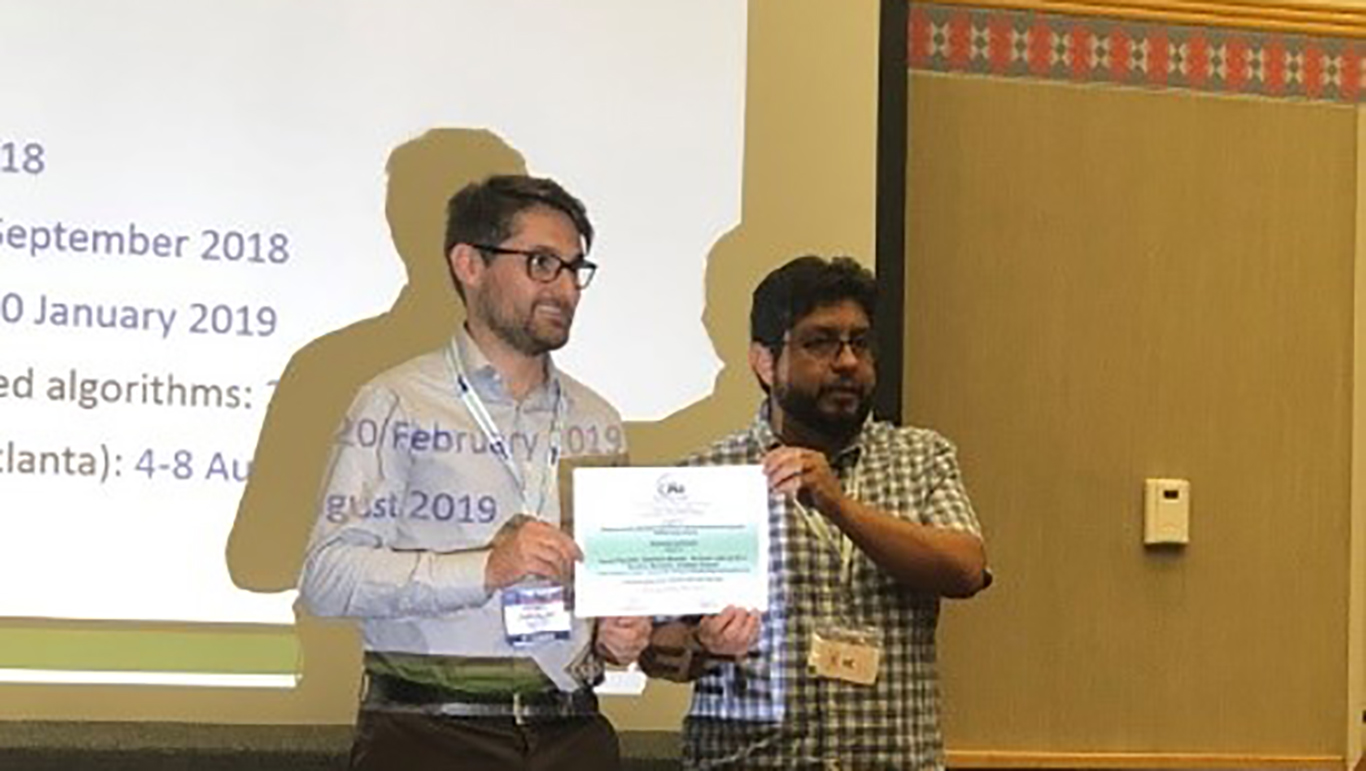INESC TEC's researchers win IEEE competition for the 3rd time
The researchers Leonel Carvalho and Vladimiro Miranda once again won the competition organised by the IEEE (Institute of Electrical and Electronics Engineers), the world's most prestigious and largest professional organisation dedicated to the advancement of science and technology.
17th September 2018
This is the third time that the researchers have won this competition organised by the IEEE, having won all the editions so far (in 2014, 2017 and 2018), also being the only Portuguese researchers to win the award. In order to solve the problems proposed in 2018 by the “Modern Heuristic Optimization” competition, both researchers were accompanied by three more researchers – Armando Leite da Silva, Carolina Marcelino and Elizabeth Wanner.
This year's competition challenged engineers from all over the world to solve two energy-related problems through metaheuristics, that is, methodologies used in order to solve optimisation problems in a general way and which are not based on mathematics but rather on natural phenomena such as the theory of evolution or behaviours that were already verified. “Despite being based on a paradigm different from the classic mathematical one, it is proved that these methods can provide excellent solutions for complex problems, however, these methods must be studied further in order to make progress in their robustness”, explains Leonel Carvalho, researcher of the Centre for Power and Energy Systems (CPES).
The victory was achieved in the two proposed challenges, related to the problem of the operation planning of Electrical Power Systems with a strong integration of renewable energies. The problems set different scenarios gathering controllable loads and electric vehicles. The performance of the algorithms proposed by the different competitors was measured by several parameters, among which the resolution speed, quality and precision of the found solution.
These problems are the ones that, in a general way, the industry working in the electrical energy sector is expected to face in the near future. That was why IEEE intended to stimulate the production of answers that can be used in the business world.
Vladimiro Miranda, Associate Director of INESC TEC and Full Professor at the Faculty of Engineering of the University of Porto (FEUP) proposed for the first time the EPSO - Evolutionary Particle Swarm Optimization – concept in 2002. Since then, the concept has been positioning itself internationally as one of the most robust metaheuristics to search for optima in difficult problems. An example of this was the fact that the three best-classified teams from another competition organised by the IEEE, and from three different countries, adopted the EPSO as a strategy.
The key success factor for researchers having won this competition lies in the combination of the EPSO with another optimisation technique, known as the Cross-Entropy Method.
The EPSO is already integrated in several products developed by INESC TEC, available in several countries and in operation in several national and international companies.
“The themes for the next year are related to the planning of the transmission network expansion and the optimisation of the Electrical Power Systems flexibility and we intend to compete again in order to ensure that the advancement of public utility science and technology has Portuguese knowledge”, concludes the researcher Leonel Carvalho.
More information on this competition may be found here.
The researchers mentioned in this news piece are associated with INESC TEC and UP-FEUP.


